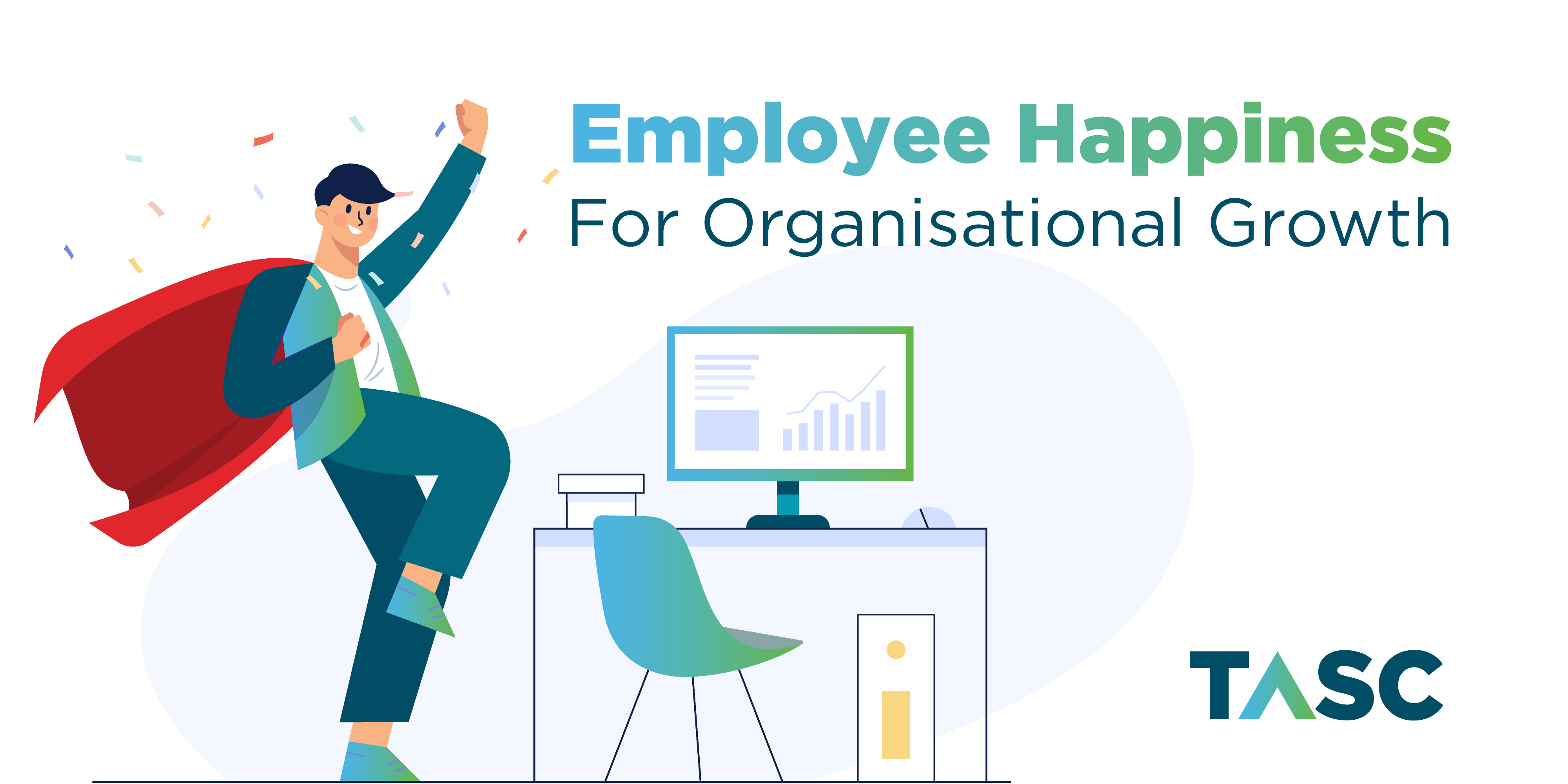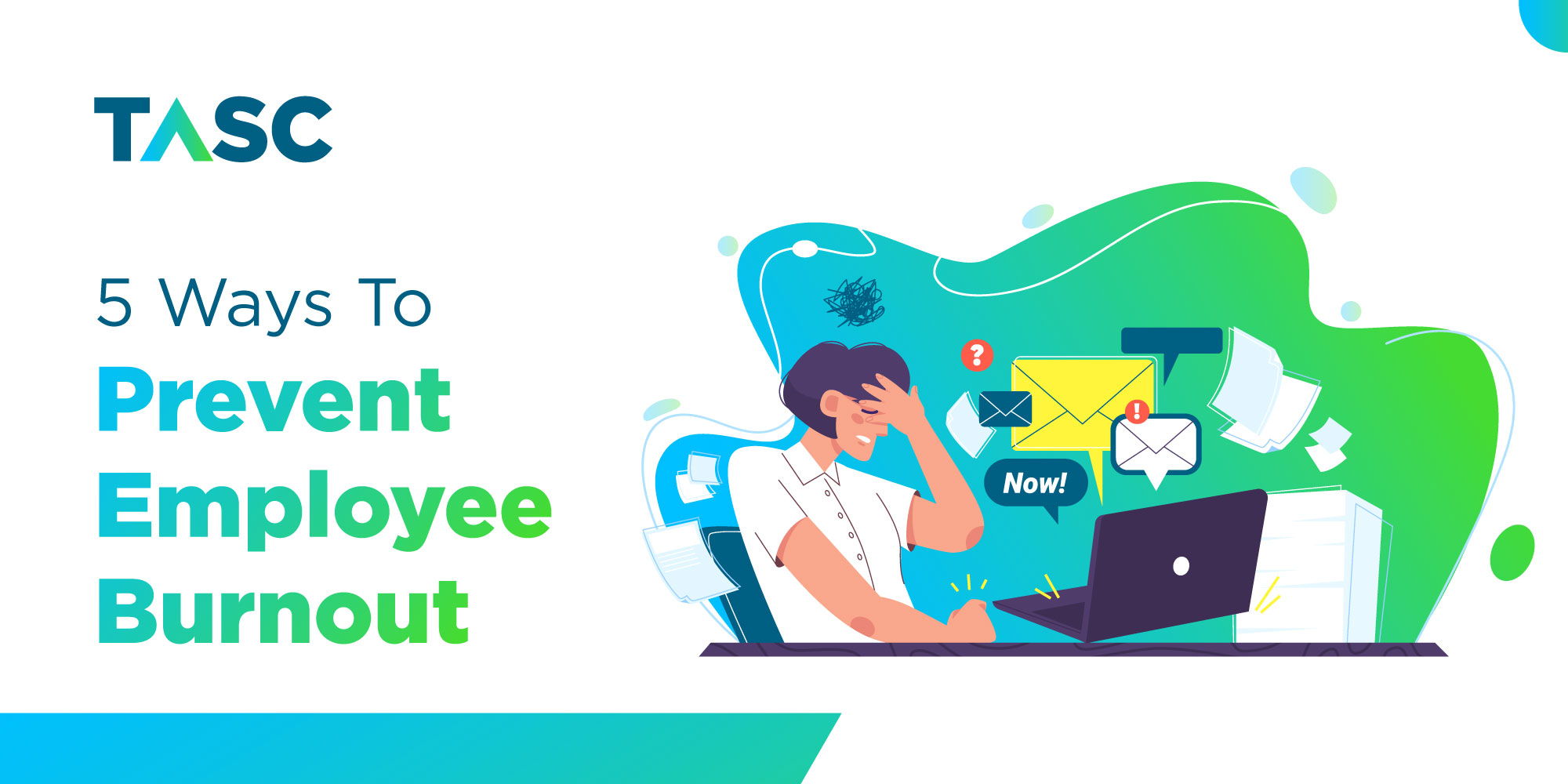Why is Employee Happiness Crucial for Organizational Growth?
We all have heard the saying “Happy employees make happy customers.” Yes, that may be true but also, employee happiness is the key to organizational growth and success. Unfortunately, not a lot of companies understand this concept, many businesses are more focused on the work to be done and operating the business as a whole and making a profit. Companies tend to forget that employees are their number one resource to success and not prioritizing employee happiness can lead to the overall downfall of a business. But why is the impact of unhappy employees affect a business so drastically?
What Is Employee Happiness?
Employee happiness is a simple idea that describes the condition of having a positive attitude and outlook on one’s work. Content people are enthusiastic about going to work. They find delight in both their work and their colleagues. Their levels of job satisfaction and employee engagement are very high. However, just because employee happiness is a straightforward concept doesn’t mean it will be simple to implement in a company. To ensure a satisfying employee experience over the whole employee lifecycle, HR professionals must give this deliberate focus and effort.
Importance Of Employee Happiness
According to statistics, 69% of candidates will turn down a job offer if they learn that the company’s workers are generally dissatisfied. Additionally, 75% of dissatisfied workers desire to get out of their existing positions. Employee happiness is a crucial part of a company’s performance, as seen by a glance at some data on the topic. In essence, you must prioritize the happiness of your employees if you hope to be able to draw in and keep top talent. Employee happiness encompasses:
- Increased Productivity
- High Employee Engagement
- Enhanced Creativity
- Low Absenteeism
- Improved Retention
How Does This Affect Overall Organizational Growth and Success?
- Employees Influence Brand Perception
Employees are a living extension of a company’s brand, particularly those in customer-facing positions. Customers begin to associate businesses with the impression that employees leave them with. As a result, additional purchases are made. This perception has the power to build or damage a company’s brand and reputation.
- Happy Employees Results to Customer Satisfaction
The article "Putting the Service-Profit Chain to Work" in the Harvard Business Review discusses the connection between employee and customer loyalty. "Customer loyalty is the main factor that fosters profitability and growth. Client happiness has a direct impact on customer loyalty. The value of the services offered to clients has a significant impact on satisfaction. Employees who are content, devoted, and productive create value.
The Key to Happy Customers? is the headline of another article from the Harvard Business Review. The American Customer Satisfaction Index's effect on Glassdoor employee evaluations was calculated by Happy Employees (ACSI). According to the study, "There is a significant statistical relationship between reported employee well-being and customer satisfaction. There is no doubt that happier employees contribute to better customer satisfaction for businesses.
- Employee Happiness Equals High Performance
Customers are more likely to raise their investment when they are happy and successful with a business. Customers who become advocates are more likely to refer other people to a company's goods or services, which only helps the business expand.
- Positive Workplace Environment Gives a Competitive Advantage in Hiring, Retention, and Long-term Tenure.
While advantages like ping pong tables and commuting benefits may help hire new employees, they won’t impress workers over the long run and employee turnover is EXPENSIVE. When an employee leaves, productivity and morale end up suffering. While juggling their tasks, other employees go above and above to make up for one fewer person. Employees have long-term economic value. Employees initially cost a firm money. Eventually, new hires settle in and contribute valuable work. As quickly as feasible, Time To Value (TTV) is the aim. Retaining employees and maximizing their worth to the organization makes sense economically and logically.
Tips On How To Improve Employee Happiness
- Ensure employees feel valued - In a Development Academy survey, 69% of dissatisfied employees said that not feeling valued was the key factor in their dissatisfaction with their jobs. Ensure open communication among all employees and ensure they receive the proper recognition and rewards for their efforts.
- Select the right candidates - The major reason employees enjoy their jobs, according to the same survey, is that they work with positive individuals. We are all aware of how much more pleasant it is to arrive at work knowing that you get along with your co-workers, and this is a significant factor in employee happiness.
- Encourage continuous development and learning - Most workers want to rise through the ranks and acquire new abilities. To ensure that workers don't feel underwhelmed in their employment, it's a fantastic idea to periodically implement fresh, enjoyable training and to make promotions whenever you can.
- Team activities - Take your team members outside of the office to promote team happiness. The energy of a group can be greatly increased by an evening of food and wine.
Outsource Your Staffing Needs To Achieve Employee Happiness
From the benefits we've discussed, it's clear that employee happiness is vital to an organization's success. Fortunately, there are specialist agencies like TASC Outsourcing that can help organizations improve employee happiness by sourcing, attracting, and recruiting the finest talent available for business across various industries.
We have the people, the skills, the services, the technology, and the insight you need to beat the competition. And we’re ready to do whatever it takes to help you level up – from recruitment and staffing to increasing employee happiness to training and development, to management, payroll, and more.
By outsourcing this critical function, organizations can focus on their core competencies and leave employee happiness in the hands of experts. If you're interested in learning more about how TASC Outsourcing can help your organization, please contact us today.
Reference
HiBob. (n.d.). What is employee happiness? [online] Available at: https://www.hibob.com/hr-glossary/employee-happiness/
ScienceDaily. (n.d.). Happy Employees Are Critical For An Organization’s Success, Study Shows. [online] Available at: https://www.sciencedaily.com/releases/2009/02/090203142512.htm
Engagedly. (2017). What is Employee Happiness And Why Is It Important? [online] Available at: https://engagedly.com/what-is-employee-happiness-and-why-is-it-important-for-your-company/.
Blog | EU Business School. (2022). Why Companies Should Focus on Employee Happiness | EU Business School. [online] Available at: https://www.euruni.edu/blog/why-companies-should-focus-on-employee-happiness/.
II, R.T. (2018). A Few Disgruntled Employees Can Destroy Your Company Culture. [online] Entrepreneur. Available at: https://www.entrepreneur.com/growing-a-business/a-few-disgruntled-employees-can-destroy-your-company-culture/319065#:~:text=Productivity%20decline%2C%20hostile%20work%20environment
www.motivosity.com. (n.d.). Why Is Employee Happiness Important? [online] Available at: https://www.motivosity.com/blog/why-is-employee-happiness-important/




.jpg)
%20(1).png)